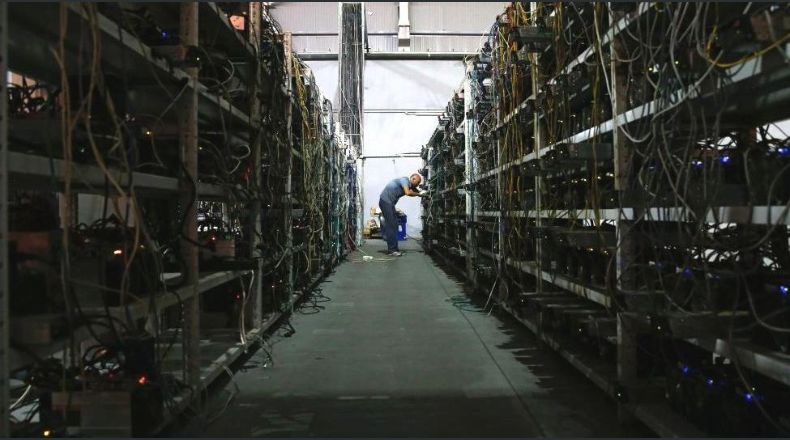What 'bitcoin' really hides? Mindblowing....

> Virtual money has long been the subject of ridicule, but the world of finance begins to take it seriously
Colorful and plump kittens. Each of them is different from all the others, a peculiarity that the algorithms that create them are responsible for. It sounds a bit like the modern version of the typical Pokémon trading cards, but there is a fundamental difference: at the beginning of December, one of these trading cards changed ownership in the Cryptokitties.io website market for the equivalent of just over 100,000 dollars.
This article is inspired by: 3 Cryptocurrency That Would Survive After a Possible Crash. Click here to read.
In purity, who paid that amount did it simply because he likes to collect virtual kittens, like who collects football cards, but what makes these cats so special? That you can not buy with 'boring' currencies like the dollar or the euro.
To acquire them, you need a virtual currency called ethereum, abbreviated, ether. That is, they can only be purchased with cryptocurrencies. The best known is bitcoin, but there are others, such as litecoin, iota or ethereum, which has become the second most important cryptocurrency largely due to the high demand for virtual kittens. A new market in itself

The cute kitten: Cryptokitties cats can only be purchased with virtual currency
Cryptocurrencies are so called because they are based on encryption technologies and are totally virtual. The price of this digital currency has risen during the last weeks at a vertigo speed. In some Asian exchanges, the quotation of a single bitcoin has reached over the barrier of $ 20,000, only to fall quickly again several thousand dollars the following week.
Much more than a 'freak' thing
For a long time, cryptocurrencies had been considered, at best, as a thing of young nerds, of technology fans. Or thing of gangsters, of criminals who try to carry out their economic transactions in the most discreet way possible, outside the knowledge of the authorities. But this somewhat murky image never did justice to bitcoin.
The 'bitcoin' was created in the middle of the crisis with an express message. «Here they have a system that does not need fallible institutions like banks»
The basic idea with which bitcoin was created, described in nine different websites in 2008 by the anonymous inventors or inventors gathered under the pseudonym Satoshi Nakamoto, is an interesting idea, the combination of an innovative technological concept and a new philosophy of money.
In January 2009 the creators generated the first block, known as the Genesis block, of the new currency and with it the first 50 bitcoins were born. In that first block they introduced (in the same way that a significant object is sometimes placed on the foundations of a building before it is built) a headline in The Times of January 3, which reported on the British bank rescue plan after the financial crisis.
With the election of that holder, the message was clear: here they have a system that no longer needs fallible intermediary institutions such as banks or investment agencies.
Nakamoto and company launched their counterproject in the midst of the biggest crisis of confidence in the current financial system. In the case of bitcoin, this 'trust problem' was solved by technology, they stated in the founding document: that is, cryptography made banks superfluous. Bitcoin, it was assured, is faster, more efficient and safer.
However, the financial establishment underestimated the new concept for a long time, making fun of it. Trust? Confidence in what, in the handling of libertarian crypto-profiteers? Despite the unquestionable imponderables surrounding the new currency, this initial contempt has faded away. From that idea emerged after the global financial crisis, has emerged a parallel financial market that must be taken seriously and that has long gone beyond bitcoin.
Banks react ... joining
Large investors, such as the American twins Winklevoss, managers themselves of a Bitcoin Exchange and who have just been awarded the category of 'crypto-billionaires', assure that the price could continue to rise, multiplying its value by 10 or by 20. It is true that most of these forecasts usually come from people who, like the famous sibling couple who was already at the origin of Facebook, benefit directly from the price increases.
Two North American stock exchanges already allow to contract future contracts with the 'bitcoin' and the German also practices with virtual currency
And it is also true that the alarm voices are also becoming louder. Some even consider whether it should not be banned because of its mere nature: we must not forget that one of its central ideas is independence with respect to states and central banks. But it is a fact that governments around the world, on the one hand, seem baffled about how to act with this new money and the financial markets, on the other hand, have decided to react on their own.
Two North American Stock Exchanges have recently begun to allow investors to enter into futures contracts on the bitcoin exchange rate and thus bet on their quotation. The German Stock Exchange is also testing the futures offer on cryptocurrencies.
So central banks are also obliged to consider what to do with this competition that has left them. Some are already taking action. Last spring, the Japanese financial supervisor authorized bitcoin as a means of payment. The US Federal Reserve, for its part, has already carried out some 'laboratory' experiments with a fedcoin, and in Sweden the Banco Real is considering the issuance of a state e-crown.
It is expected that the Bank of International Settlements, known as the 'bank of central banks', will publish in the first semester of 2018 a document with measures of action with respect to cryptocurrencies.
Thus, it is evident that a power struggle is brewing between the current state monopoly on the issue of money and the control of monetary policy, on the one hand, and the new and anarchic world of virtual currencies on the other. Despite its spectacular growth, the latter remains comparatively dwarf; the whole of its market value is below one billion dollars. Even the Apple company alone has a stock market value higher than that amount . However, everything points to the fact that the cryptocurrency phenomenon will no longer disappear, even if bitcoin sinks.
Because this option is not disposable. Even those who negotiate with bitcoin are prudent. Oliver Flaskämper, who operates from Bitcoin.de, in Germany, is one of them: "You only have to invest in bitcoins money that really is not needed," he says. And he adds, "by itself, a bitcoin has no value, of course. Although, on the other hand, where does the value of gold come from, or of that painting by Leonardo da Vinci for which a collector has just paid 450 million dollars? "
The market for cryptocurrencies is still very small; lower than the value of companies like Apple, but the phenomenon seems to have consolidated
The same goes for all coins of legal tender. Since the untying of the gold standard, a paper currency like the euro bases its value above all on the guarantee of the State and on the confidence that tomorrow we will be able to use the tickets to make the purchase.
The unstoppable 'cryptoboom' Asian
Basically, what fuels bitcoin fever is a mixture of greed and distrust in the dominant system, and in Asia much more than in Europe.
The new Chinese rich discovered digital money especially soon and they like to use it as a vehicle to secure their savings against the state. Many Chinese are turning to bitcoins to get their money out of the country. Therefore, in September, the Beijing government ordered the closure of the local bitcoin exchange.
In Japan, on the other hand, there are already 10,000 shops that accept payment with bitcoins, from sushi bars to electric companies. However, at this time few people are willing to part with their bitcoins just like that, since tomorrow could be worth much more than today. In addition, transactions with bitcoins have become more expensive and, given that the algorithm of bitcoins requires that each transaction be confirmed by a chain of successive steps, payment processes take time. All this reinforces the tendency not to use bitcoin as a means of payment, but as an object of speculation and deposit.
Companies like Amazon would already be working in their own currencies. With them they could do without banks and retain their customers
In Japan, classic banks have also recognized the potential of cryptocurrencies. The largest financial institution in the country, the Bank Tokio-Mitsubishi UFJ (MUFG), has long been issuing its own digital currency, the MUFG, based on blockchains technology. Unlike what happens with bitcoins, customers can not count on their value to rise over time, since the MUFG is changed in a one-to-one relationship with the Japanese yen. However, the use of cryptocurrency makes on-line transfers more convenient and cheaper.
In Japan, virtually no one questions cryptocurrencies. And it is quite surprising, since the country lived a little more than three years ago a huge scandal led by the bitcoins: the sinking of Mt. Gox, the until then largest Bitcoin Exchange in the world, based in Tokyo. Hundreds of thousands of bitcoins deposited in Mt. Gox were volatilized and that bankruptcy illustrates one of the weaknesses of the system.
What if companies offer interests in 'bitcoins'?
But even the crises are far from stopping the phenomenon. There are still a multitude of possibilities open. Companies like Amazon could soon put their own virtual currencies into circulation , believes economist Thomas Mayer, "offering their customers accounts from which they could make their purchases in the global market." You could also consider paying a kind of interest, such as a loyalty bonus. Amazon and other Internet giants would already be working on these types of plans.
Mayer assumes that in the coming years there will be different virtual currencies competing with each other: those organized in a decentralized way, such as bitcoin, and those issued and controlled by the states or central banks, but also the cryptocurrencies of Internet companies such as Amazon or its Chinese competitor, Alibaba.
Therefore, the actors that until now controlled the money would do well to prepare for a tough competition. "In the end," says Mayer, "much will depend on whether central banks succeed in regaining citizens' confidence."